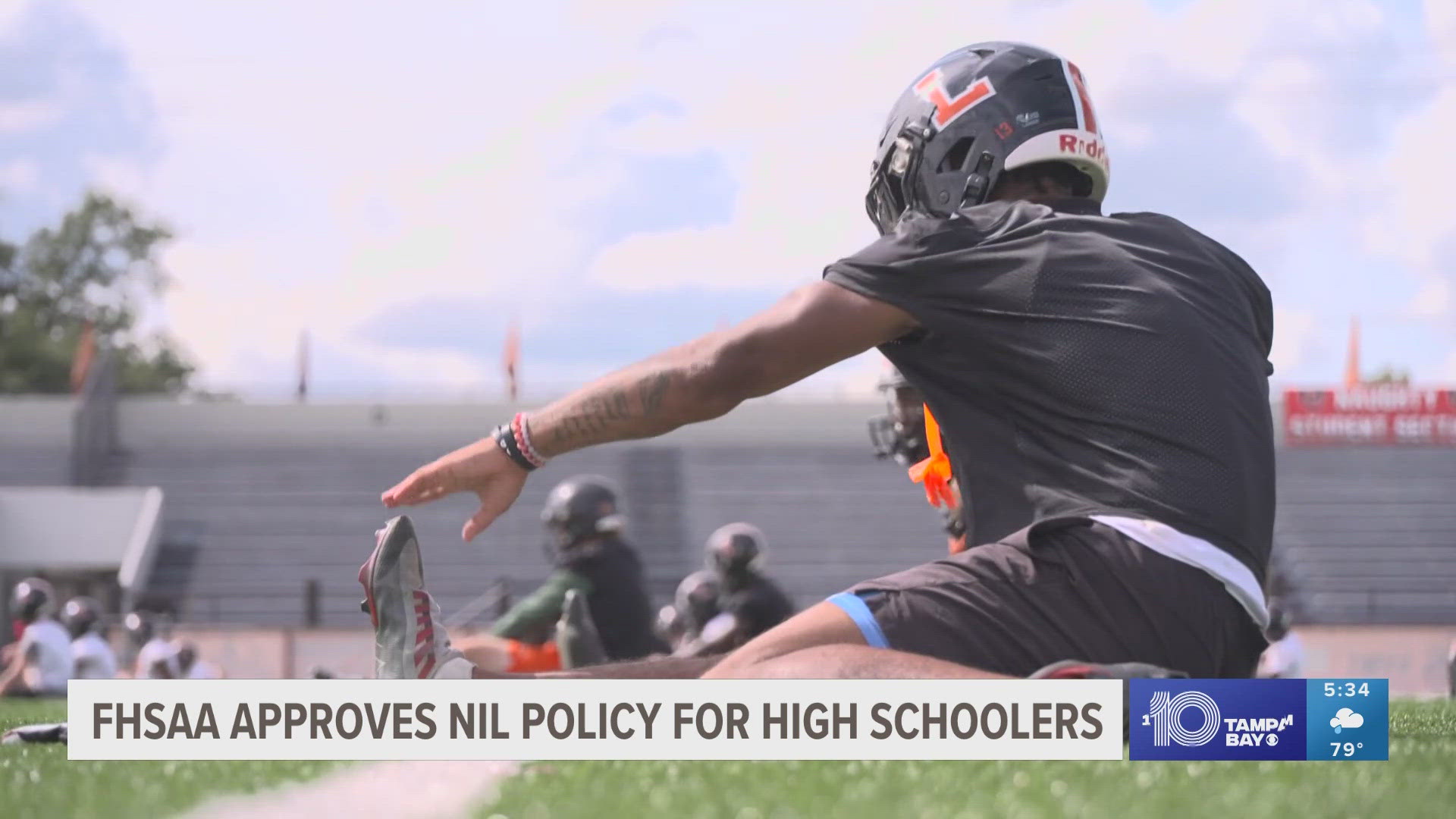ST. PETERSBURG, Fla. — The Florida High School Athletic Association (FHSAA) has approved a policy allowing Florida high school athletes to earn money for their name, image and likeness (NIL). Florida is now one of around 30 states to jump on board having NIL deals for high schoolers.
Summer break isn’t just about having fun for Ayodeji Saka. Saka said he’s conditioning.
“I'm doing like a workout. I'm doing like three 60s (sixty-meter dashes) and three 200s (200-meter dashes) just to stay in shape for the summer,” Saka said.
Saka is part of the track and field team at Lakewood High School.
“I felt like it was one of the hardest sports to get good at because I'm naturally athletic, so I chose one of the hardest ones to challenge me,” Saka said.
As he enters his senior year, he wants to get a track scholarship but is also hoping to land an NIL deal.
“I already use some of these brands, so it'd be nice to get paid for using them,” Saka said.
“It would definitely motivate me more because it shows that people are looking at what I’m doing and that I'm actually putting in hard work. It will also help me with some of the stuff I can buy to help advance what I'm trying to do,” Saka said.
Unlike college athletes, high school athletes would not be able to work with NIL Collectives. The FHSAA says it's against organizations collecting funds from businesses to help facilitate an athlete's NIL deal.
FHSAA requires parents or guardians to negotiate deals with the student.
“It looks like both parent and student would be signing those agreements,” Gallagher said.
Local attorney Charles Gallagher said this falls in line with Florida law but could cause problems in some households.
“They should hold those funds for the child, for the minor because it's their funds but there's nothing to prevent a parent from using those funds," he said.
Gallagher encourages families to consider adding more guidelines, like a trust agreement.
“Potentially, you let the student have a set amount for them to use during a time frame. You don't want someone to get some significant funds and to go ahead and blow them on things that are not really important,” Gallagher advised.
This policy still has to pass one more hurdle before it goes into effect this upcoming school year. The State Board of Education will have the final say in late June.

